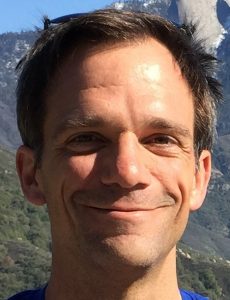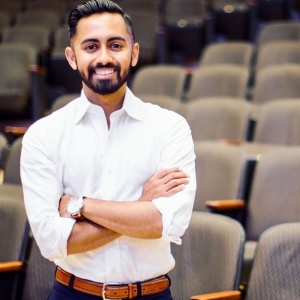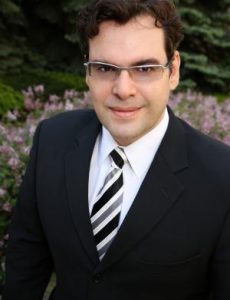French President Emmanuel Macron’s ambitious goal of creating a vibrant and competitive French economy through major economic reforms came crashing down last week when riots over issues ranging from fuel taxes to inequality forced him to backpedal on some of his key reform ideas.
With an approval rating of around 20 percent and plummeting, Macron shifted from a market reformer to a populist in order to ameliorate angry voters.
Shortly after reducing taxes and regulations on businesses while at the same time weakening some of Europe’s strongest employment protection rules, Macron capitulated to protesters by increasing the minimum wage through a government-funded wage subsidy, eliminating taxation of overtime pay and by rescinding a tax increase on low-income pensioners.
It is doubtful that Macron could have retained his presidency by doing any less. The cost of this newfound populism will be about 0.4 percent of French GDP, which may strain France’s ability to maintain a fiscal deficit within the prescribed limits of the eurozone.
Macron’s proposals to strip away decades of sclerotic economic policies is spot on, and the recent protests clearly threaten his broader agenda of increasing the efficiency and competitiveness of France.
There is virtually universal agreement among economists that France desperately needs economic policy reforms to increase job creation and economic growth and to reduce unemployment that has stubbornly remained around 9 percent 10 years after the financial crisis.
In comparison, German unemployment is now 3.4 percent, down from roughly 8 percent during the financial crisis.
France has long been the poster child of economic policies that have depressed competition, raised costs, reduced productivity growth and that have created regulations that benefit very few while significantly harming many.
With youth unemployment hovering near 20 percent or more for most of the last 35 years, the last thing France should do is destroy job opportunities for young people. But this is exactly what France did for years through a morass of driving school regulations that raised the cost of driver training to a cost between $2,000 to $4,000.
Poorly-designed economic policies have had an enormous negative impact on the French economy. Since 2000, economic growth in France has averaged a shade over 1 percent per year, and is averaging only about 0.5 percent per year after adjusting for population growth.
The Heritage Foundation’s Economic Freedom index ranks France 71st, slightly ahead of Tonga and other very poor countries but behind Albania, which is not exactly the pinnacle of economic success, having recently borrowed $400 million from the International Monetary Fund to shore up its economy.
Punitive tax policies and poor economic performance have led many of France’s best and brightest to leave. In 2017, Macron campaigned for the presidency in London, of all places, which is home to 300,000 French citizens, more than the number who live in the French regions of Bordeaux or Nantes.
Today’s grossly inadequate economic performance is inconceivable when viewed from the perspective of France’s former economic heights. Between World War II and the mid-1970s, France was one of the world’s most successful economies.
Real GDP growth averaged 5 percent per year at that time. Real GDP per person — the conventional measure of living standards — was doubling every 17 years. At today’s miniscule growth rate, it will take 140 years for French per capita real GDP to double.
Macron and his advisers now face the difficult task of convincing voters to trust market-based economic reforms that will require some short-term sacrifice in order to achieve higher long-run growth. France grew so quickly after World War II through the 1970s because the French chose to make those short-term sacrifices.
The share of output devoted to consumption fell substantially, and the share devoted to investment rose by 50 percent during France’s postwar economic renaissance. These investments significantly increased worker productivity and French competitiveness in the rapidly expanding global economy.
French workers, who today are perceived to enjoy more vacation time than workers in any other country, worked as much as 46 hours per week, and 50 weeks per year, in the 1950s. Today, the French work 40-percent less than they did back in the day, reflecting a smaller proportion of the population working, as well as a much shorter workweek.
This enormous decline in market work is not because today’s French workers value leisure more than their grandparents. Rather, it is because tax rates are much higher than when their grandparents worked, and these higher taxes have depressed the incentive to work.
To restart his reform program that includes reforming the complicated French pension system as well as reducing government spending, Macron must regain the confidence of French voters for them to accept the short-term economic sacrifices and dislocations that will ultimately create higher economic growth.
With Macron’s economic reforms in place, French GDP growth could increase from its current rate of 1 percent per year to 3 percent per year for several years.
It has been nearly two generations since France offered its workers and businesses a vibrant and flexible market economy. Most French voters have never lived in such an economy. Some are skeptical whether they will benefit from Macron’s reforms, and others simply don’t know.
Macron’s ability to govern France and to implement his economic reforms no longer depends on the quality of his economic ideas. Rather it depends on his skills as a salesman of those ideas. And if Macron succeeds, France can look forward to a much brighter economic future.





